From Battlefield to Buddha Purnima: Modi Declares New Era of Indian Strength!
Modi Addresses Nation After Troops Visit, Highlights 'Operation Sindoor' Success
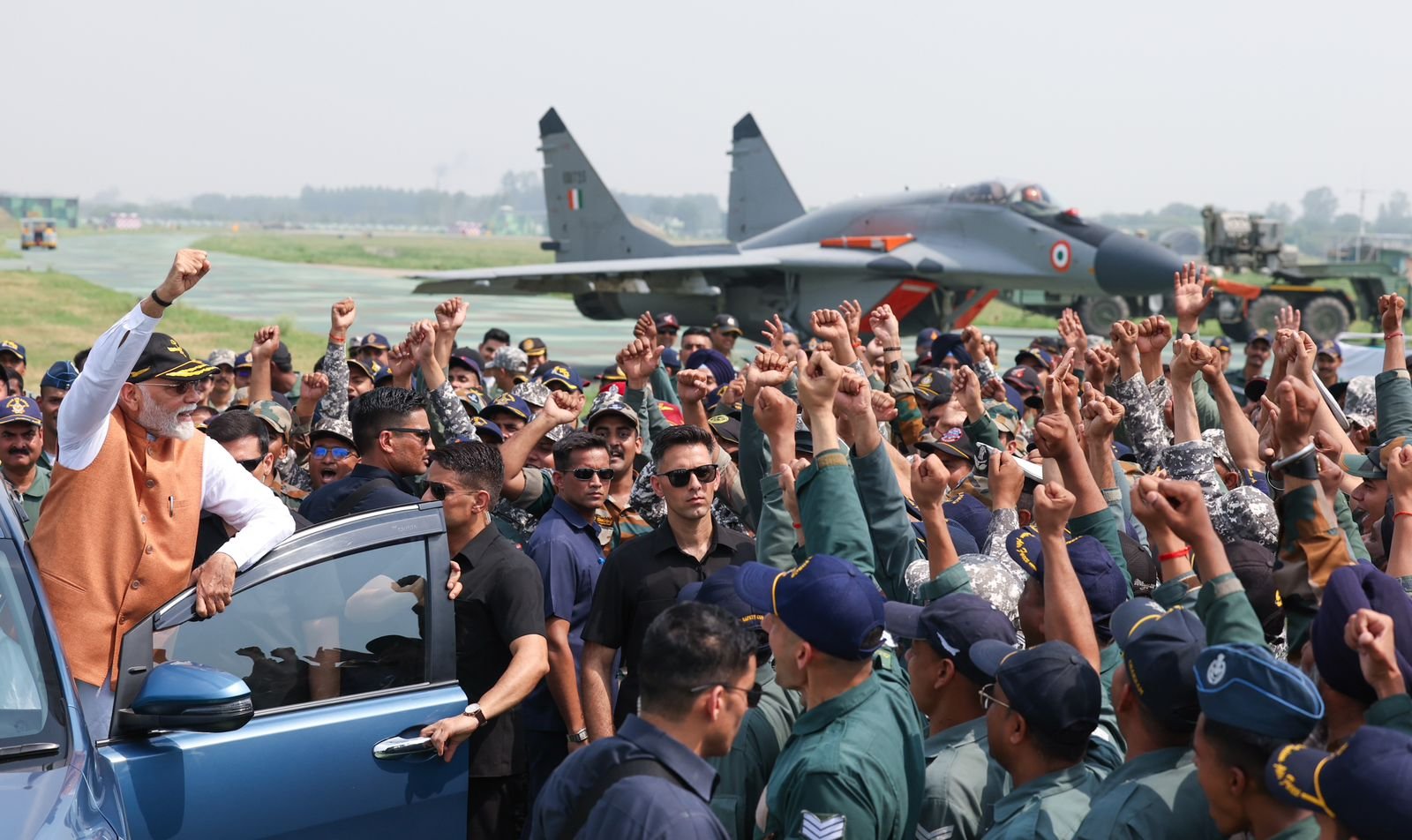
New Delhi – Prime Minister Narendra Modi today shared moments from a "very special" visit to Air Force Station Adampur, meeting with India's brave air warriors and soldiers. The visit, glimpses of which were shared on social media platform X, captured a palpable sense of pride and camaraderie between the Prime Minister and the armed forces personnel. Amidst the powerful backdrop of military aircraft, including a MiG-29 fighter jet visible in one shared photograph, PM Modi conveyed India's "eternal gratitude" for their courage, determination, and fearlessness.
The visit comes just a day after the Prime Minister addressed the nation, offering a detailed account of recent events, including the retaliatory strikes in Pakistan dubbed 'Operation Sindoor,' following a brutal terrorist attack in Pahalgam, Jammu and Kashmir. In his address on May 12, 2025, PM Modi spoke with a tone blending national grief and unwavering resolve.
Reflecting on the "barbarity" of the Pahalgam attack on April 22, where innocent civilians were killed based on their religion, the Prime Minister described it as a "gruesome face of terror and cruelty" and a "disgusting attempt to break the harmony and unity of the country." He stated that the attack was personally very painful for him but galvanised the entire nation for strong action against terrorism. "We gave full freedom to the Indian forces to wipe out the terrorists," he asserted, adding that terror organisations now understand the consequences of their actions.
PM Modi framed 'Operation Sindoor' as more than just a military action; he called it "a reflection of the feelings of millions of people of the country" and India's "unwavering commitment to justice." He recounted the precision attacks on terror hideouts and training centres in Pakistan on the night of May 6th and the morning of May 7th. He emphasised that terrorists had underestimated India's capacity for such a decisive response, which was possible because "the country is united, endowed with the spirit of Nation First and national interest is paramount."
According to the Prime Minister, the Indian strikes shook not only the physical structures but also the "courage" of terrorist organisations whose bases in places like Bahawalpur and Muridke are, he claimed, "universities of global terrorism." He stated that over 100 dreaded terrorists, including leaders who had been conspiring against India for decades, were killed in these attacks.
PM Modi described Pakistan's reaction to the strikes as "deeply disappointed and frustrated," leading to a "cowardly act" of attacking India itself, targeting civilian areas and military bases. However, he asserted that Pakistan's actions exposed itself to the world, as its drones and missiles were effectively neutralized by India's air defence systems. In contrast, Indian drones and missiles struck "at the heart of Pakistan," damaging proud Pakistani Air Force bases and inflicting heavy damage in the initial days, which Pakistan had not anticipated.
He stated that after suffering significant losses and witnessing India's aggressive action, Pakistan began seeking ways to de-escalate tensions, pleading with the world community. Eventually, on the afternoon of May 10th, Pakistan's army contacted India's Director General of Military Operations (DGMO). By this time, PM Modi said, India had achieved its objectives, destroying large-scale terror infrastructure and eliminating terrorists. India agreed to a suspension of retaliatory action after Pakistan appealed and committed not to engage in further terror activities or military actions. However, the Prime Minister cautioned that this suspension is conditional, and India will monitor Pakistan's attitude going forward.
Highlighting the constant alert of India's armed and paramilitary forces, PM Modi declared 'Operation Sindoor' as the new benchmark in India's policy against terrorism. He laid out three clear tenets: a fitting and strict reply on India's terms to any terrorist attack, no tolerance for nuclear blackmail with precise strikes on terror hideouts, and no differentiation between state sponsors and masterminds of terrorism. He cited the world witnessing top Pakistani army officers bidding farewell to slain terrorists during Operation Sindoor as strong evidence of state-sponsored terrorism.
The Prime Minister also spoke of India's historical victories against Pakistan on the battlefield, noting that Operation Sindoor added a new dimension by demonstrating capabilities in "New Age Warfare" and proving the credibility of "Made in India" defense equipment.
Concluding on Buddha Purnima, the Prime Minister referenced Lord Buddha's path to peace, stating that this path also requires strength. He linked national strength and the willingness to use it when necessary to achieving peace, prosperity, and the dream of a 'Viksit Bharat' (Developed India). He ended his address by saluting the armed forces and the courage, unity, and resolve of the Indian people.
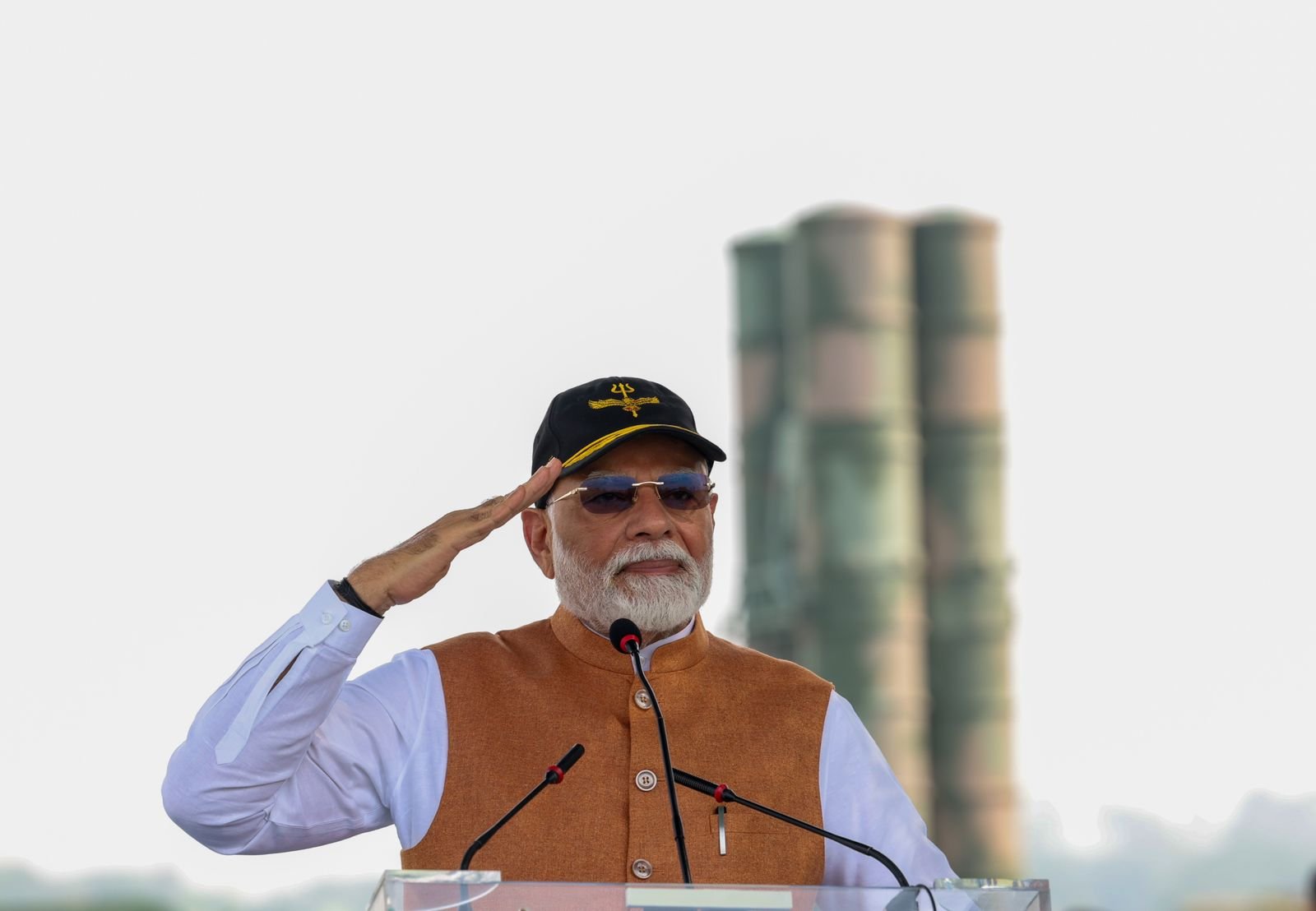
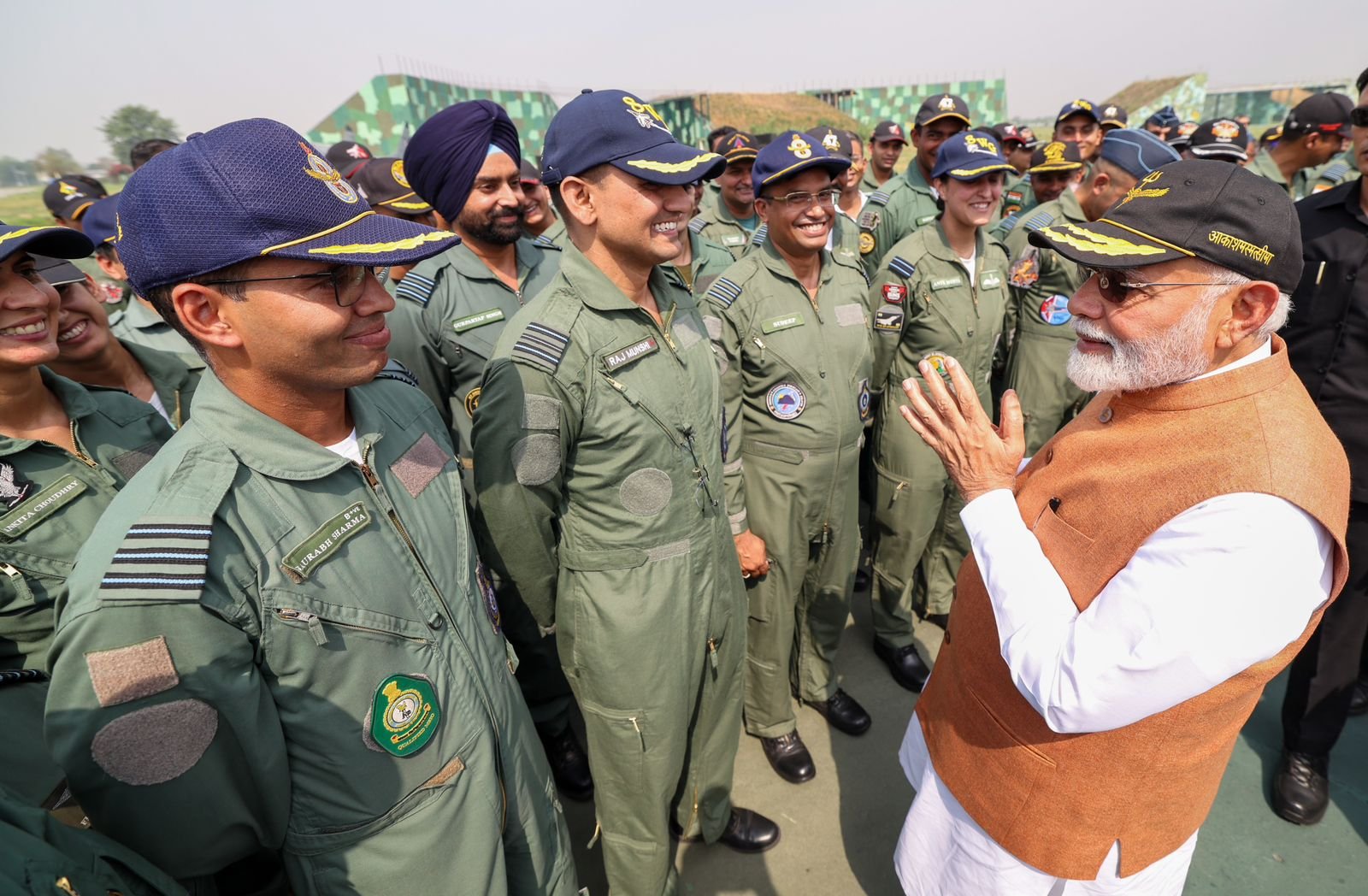

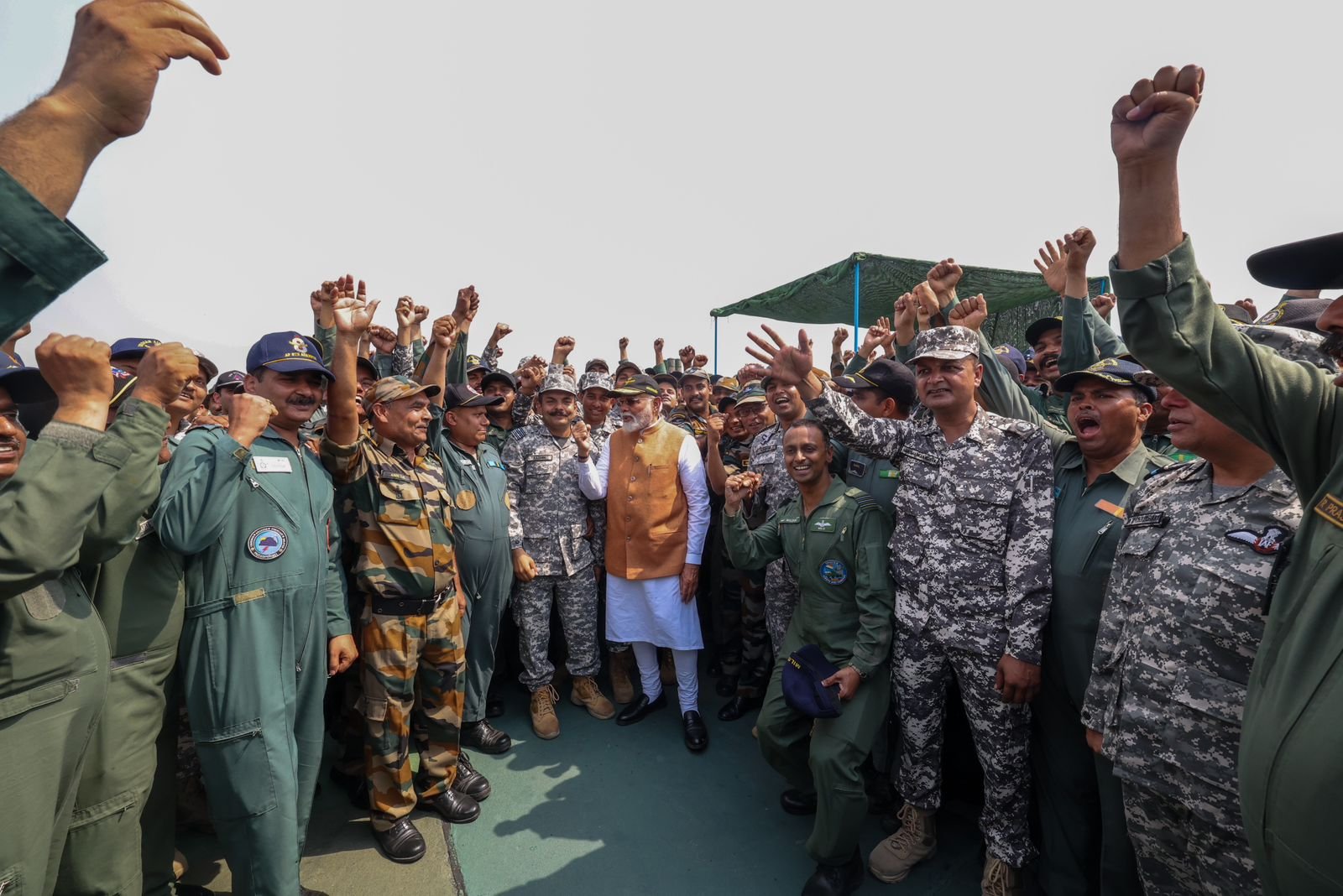
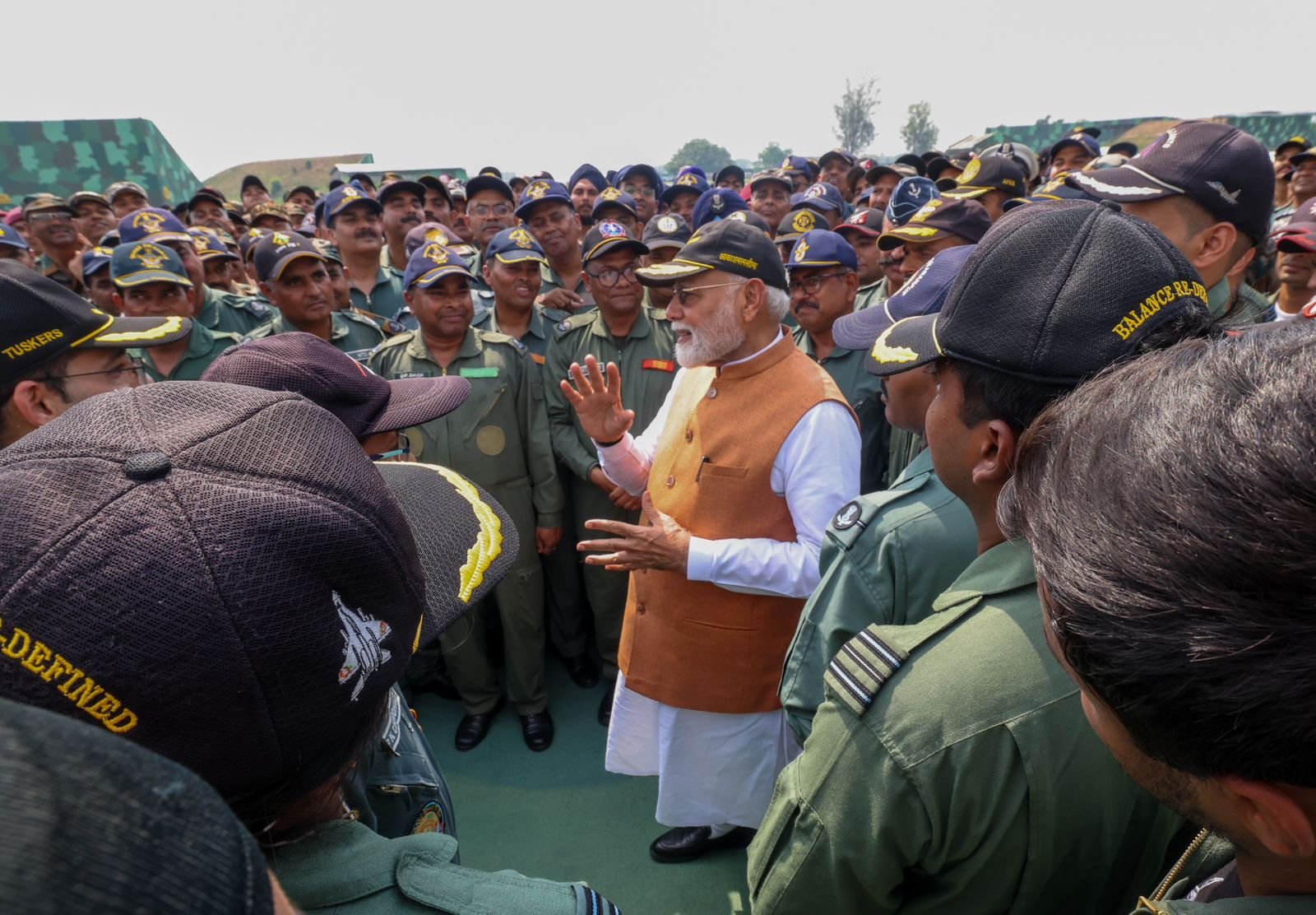
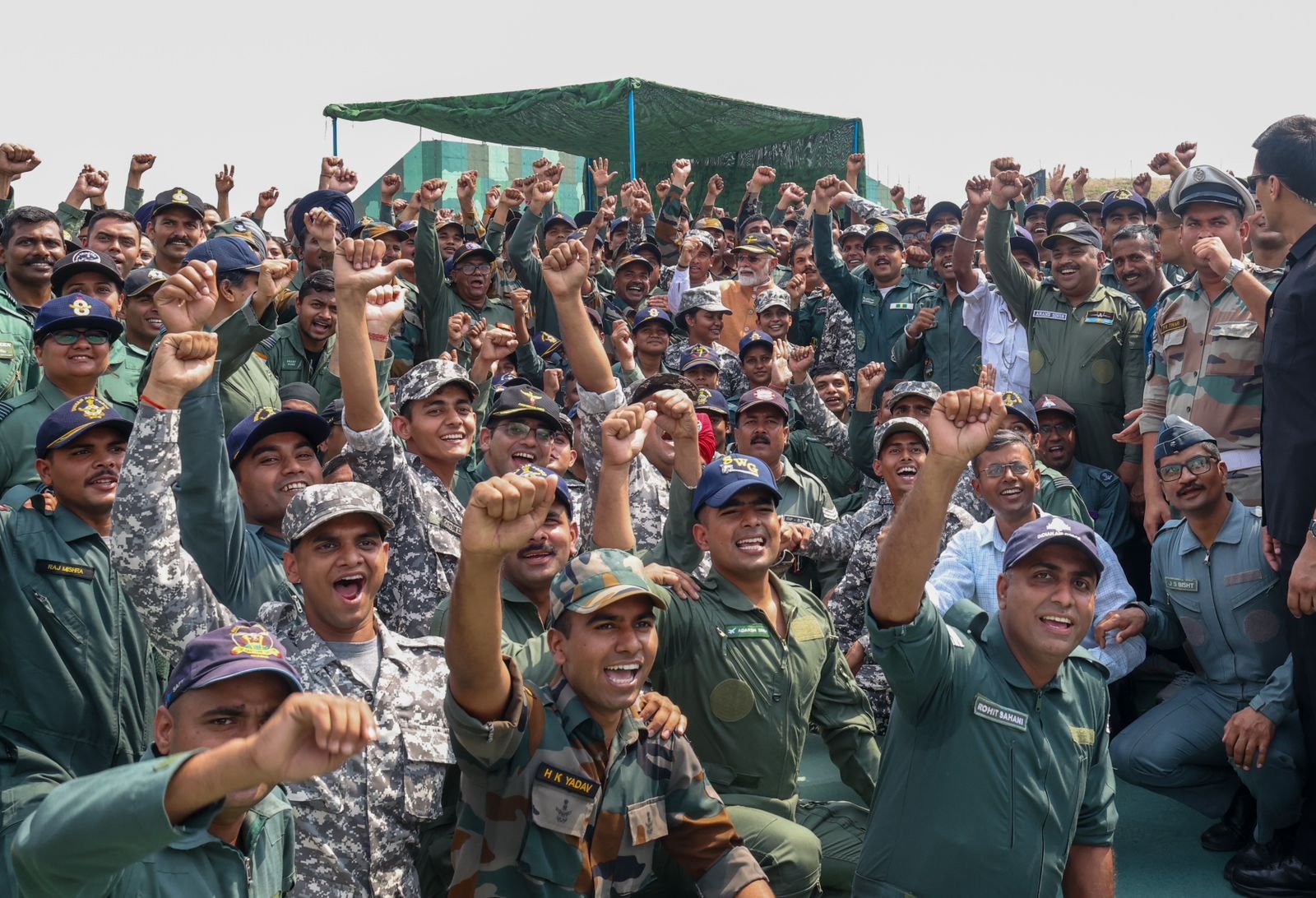




![From Kathmandu to the World: How Excel Students Are Winning Big [Admission Open]](https://www.nepalaaja.com/img/70194/medium/excel-college-info-eng-nep-2342.jpg)
